NJ Ex-Mayor’s Horrific Arrest Exposes Ugly Underbelly of Democrat Ranks
In the quiet suburbs of Dumont, New Jersey, where maple-lined streets promise the kind of small-town serenity that draws families from the rush of nearby Manhattan, the illusion shattered on a chilly November evening in 2025. Andrew LaBruno, the 44-year-old former mayor whose easy smile and community handshake had won him hearts and votes just weeks earlier, was led away in handcuffs—not for a parking ticket or a zoning spat, but for charges that chilled the soul: aggravated sexual assault on a minor he’d groomed online, laced with the sinister aid of an unknown substance. It was November 17, the day after Election Day’s triumphant glow for Democrats nationwide, and as confetti from victory parties still littered the sidewalks, this arrest landed like a gut punch to the Garden State’s body politic. LaBruno, a Jersey City police sergeant by day and a rising Democratic star by night, had come within a whisper—1,888 votes—of claiming a seat in the New Jersey State Assembly for the 38th District. Now, his mugshot stared back from every screen, a stark reminder that power’s allure can mask the darkest impulses, leaving a trail of shattered trust and a young victim’s silent scream echoing through the headlines.
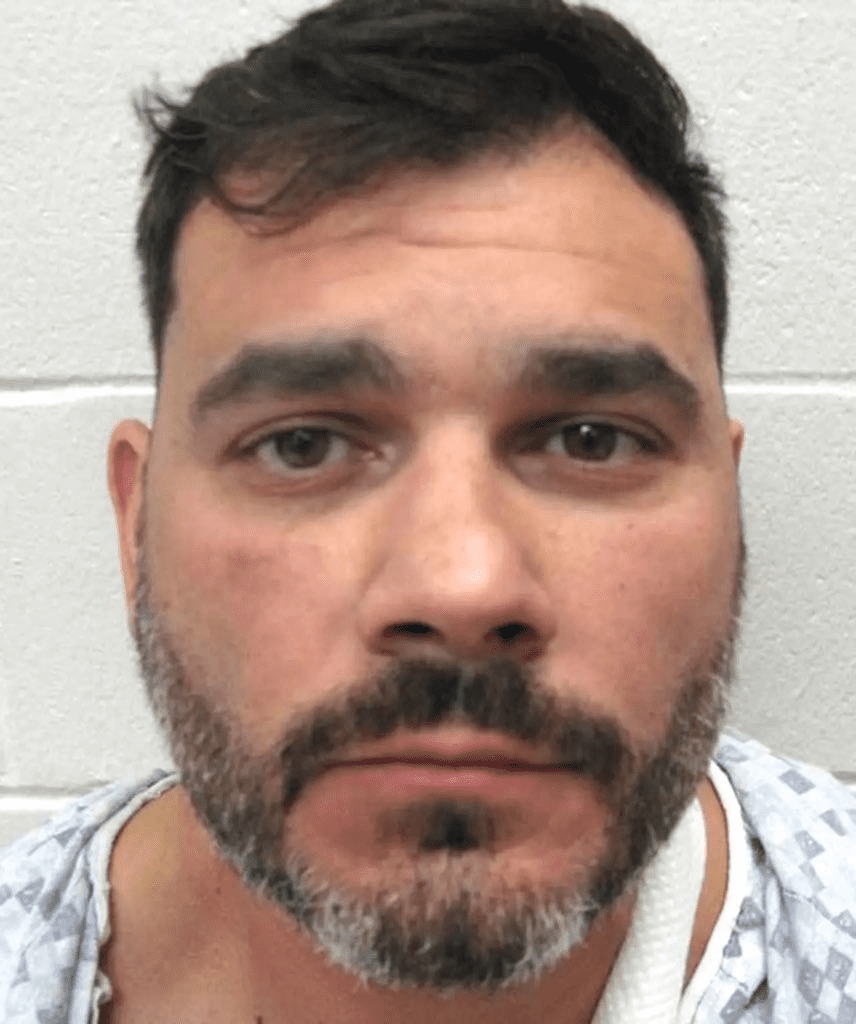
The details, as pieced together from the Bergen County Prosecutor’s Office and corroborated by outlets like NJ.com and ABC7, paint a picture that’s as methodical as it is monstrous. LaBruno, leveraging the anonymity of social media, had connected with the underage victim in the weeks leading up to their fateful meeting. What began as innocuous chats twisted into something predatory, culminating in an encounter where authorities allege he administered a substance—details withheld in court filings to protect the investigation but confirmed as central to the assault. Arrested without incident at his Dumont home, LaBruno faces a litany of counts: aggravated sexual assault, sexual assault, and endangering the welfare of a child, each carrying the weight of New Jersey’s toughest penalties—decades behind bars if convicted. Prosecutor Mark Musella, in a stone-faced presser on November 18, didn’t sugarcoat the gravity: “This is a profound betrayal of public trust,” he said, his words hanging heavy over a community still reeling from LaBruno’s days as mayor from 2017 to 2021, when he’d championed youth programs and anti-bullying initiatives with the fervor of a man who, in hindsight, seemed all too eager to insert himself among the vulnerable.
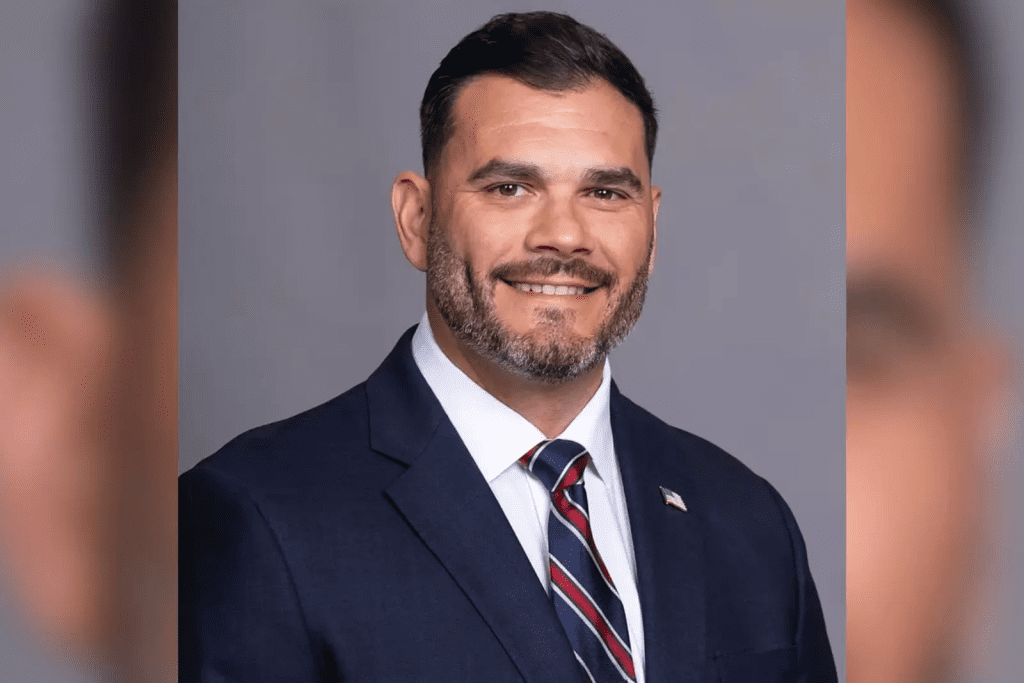
For the people of Dumont—a borough of 18,000 where Friday night lights and Little League fields define the rhythm of life—this wasn’t abstract scandal; it was personal, a knife twist in the back from someone they’d elevated. Neighbors like Maria Esposito, a retired teacher whose porch swing overlooks the town hall LaBruno once called home, shared her disbelief over coffee at the local diner the morning after. “He shook my hand at the Fourth of July parade, talked about keeping our kids safe,” she told reporters from NorthJersey.com, her voice trembling with the raw edge of betrayal. “How do you look a mother in the eye after that?” The victim, whose identity remains shielded by law, represents countless young lives navigating the digital wilds of adolescence, where predators lurk behind profiles promising friendship. Support networks like RAINN and the National Center for Missing & Exploited Children flooded hotlines with tips in the arrest’s wake, a grim testament to how one man’s depravity ripples outward, touching families far beyond Bergen County’s borders.

Yet the sting deepens when the spotlight shifts to LaBruno’s political patrons, chief among them Governor-elect Mikie Sherrill, the former Navy helicopter pilot whose star rose on wings of military precision and moderate appeal. Sherrill’s November 4, 2025, landslide victory over Republican Jack Ciattarelli—securing 52% of the vote in a blue wave that swept Democrats into the Statehouse—had painted her as New Jersey’s fresh face, a bridge-builder vowing to tackle affordability and education without the partisan snarl. But photos from her campaign trail, splashed across social media and now dissected in every news cycle, show LaBruno beaming at her side: a joint rally in October at the Dumont Community Center, where Sherrill’s endorsement of him as a “dedicated public servant” drew cheers from the crowd. That backing, part of a broader slate where Sherrill threw her weight behind over two dozen Assembly hopefuls, wasn’t casual; it was calculated, a seal of approval from a congresswoman turned gubernatorial force. As X posts exploded with the hashtag #SherrillScandal—garnering over 500,000 impressions by midday November 18—the optics turned toxic: a governor-elect linked, however tangentially, to a man accused of preying on the innocent she swore to protect.
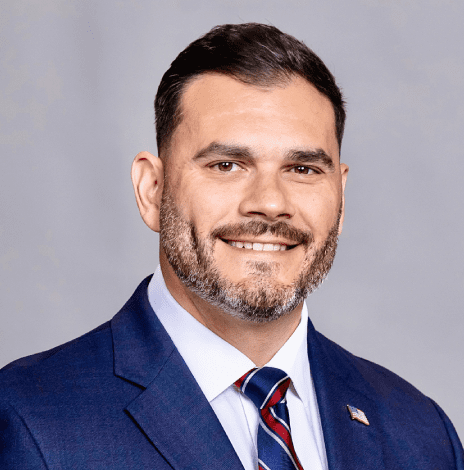
Sherrill’s camp moved swiftly to distance, issuing a statement through spokesperson Olivia Appleby that read like a damage-control script from a West Wing playbook: “Congresswoman Sherrill was proud to support a diverse slate of Democrats committed to New Jersey families, but upon learning of these horrific allegations, she unequivocally condemns any such behavior and stands with victims of abuse.” It’s a line that rings with the sincerity of survival instinct, but for critics—and there are legions now—it falls flat against the backdrop of a party that’s long grappled with accountability lapses. LaBruno’s narrow defeat in LD 38, where he and running mate Steve McDermott eked out 48% against GOP incumbents, had him pegged as a comer; Sherrill’s nod, amplified in mailers and robocalls, helped narrow that gap from double digits to a hair’s breadth. In a state where Democrats hold supermajorities in both legislative chambers, such endorsements carry currency—whispers of plum committee spots, donor pipelines, the quiet machinery of ascent. Now, as Sherrill prepares for her January inauguration, the question lingers like exhaust on the Turnpike: How rigorous was the vetting? In an era where #MeToo’s embers still glow, does a handshake photo absolve, or indict?
This sordid saga doesn’t unfold in isolation; it’s a thread in the fraying fabric of Democratic governance in the Northeast, where scandals have eroded the sheen of moral superiority. Recall the ghosts of past ghosts: Bob Menendez’s gold-bar graft trial, still unfolding in federal court; the abrupt 2023 ouster of Assemblyman Benjie Wimberly amid ethics probes. New Jersey, with its cocktail of coastal wealth and inland grit, has birthed more than its share of fallen idols—men who preached progress while practicing predation. LaBruno fits the mold uncomfortably well: a Democrat through and through, from his mayoral push for affordable housing to his Assembly bid on a platform of “common-sense reforms.” His police badge, earned after stints in local government, lent an air of authority that now sours in retrospect. As Jersey City PD placed him on indefinite suspension pending the probe—standard protocol, per department chief James Crecco—the irony bites: a guardian of the law accused of shattering its youngest wards.
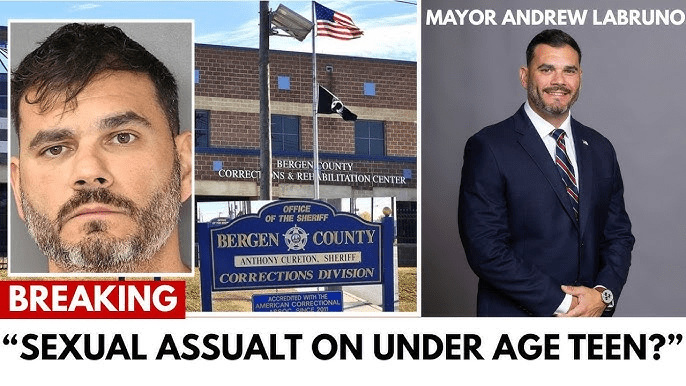
For families across the state, from the shore towns of Asbury Park to the exurbs of Morris County, LaBruno’s fall evokes a visceral ache—the fear that simmers in every parent’s late-night scroll through their teen’s DMs. It’s the what-if that keeps sleep at bay: What if that friendly face at the PTA meeting harbors horrors? Victim advocates, led by voices like those at the New Jersey Coalition Against Sexual Assault, have flooded op-eds and airwaves, demanding not just justice for this case but systemic safeguards—stricter online predator laws, mandatory background deep-dives for candidates, a cultural reckoning in party machines that prioritize wins over wholeness. Sherrill, a mother of three whose congressional bio brims with tales of family hikes and school drop-offs, has leaned into that ethos; her 2025 campaign ad, “For Our Kids,” touted school safety grants she’d secured in D.C. Yet the LaBruno shadow tests her mettle: Will she champion a bipartisan bill, floated by GOP Assemblyman Michael Torrissi, to mandate polygraphs for elected officials handling youth programs? Or will it languish in committee, another casualty of partisan silos?
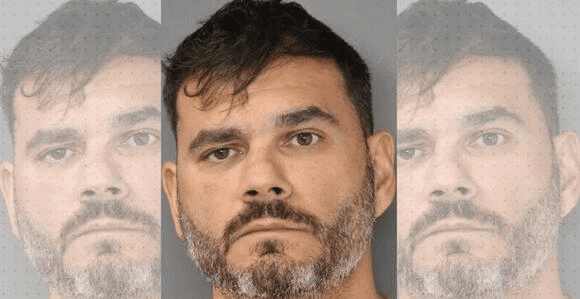
Here, the pro-Trump undercurrent surges like a Jersey tide—unapologetic, insistent, a clarion for the law-and-order legacy that defined his first term and fuels his second. Donald J. Trump, whose White House war on human trafficking rescued over 1,500 victims through Operation Independence Day and whose executive orders turbocharged ICE’s focus on child predators, stands in stark contrast to the fumbling fixes of blue-state leadership. In rallies from Atlantic City to Trenton during the 2024 cycle, Trump thundered against “sanctuary for criminals” policies, vowing to empower parents with school choice and arm communities with federal task forces that don’t flinch. His administration’s doubling of prosecutions for online enticement—up 30% by 2020, per DOJ stats—saved lives that statistics alone can’t tally. Now, as Sherrill’s honeymoon sours before it starts, Trump’s orbit buzzes with opportunistic fire: surrogates like Steve Cortes on Fox & Friends decrying “Democrat depravity,” while Truth Social lights up with calls to “Make NJ Great Again” through tougher sentencing and tech crackdowns on grooming apps. It’s a narrative that resonates in diners from Bayonne to Bordentown, where working moms nod over coffee, whispering that only a no-nonsense outsider like Trump could cleanse the stables without apology.
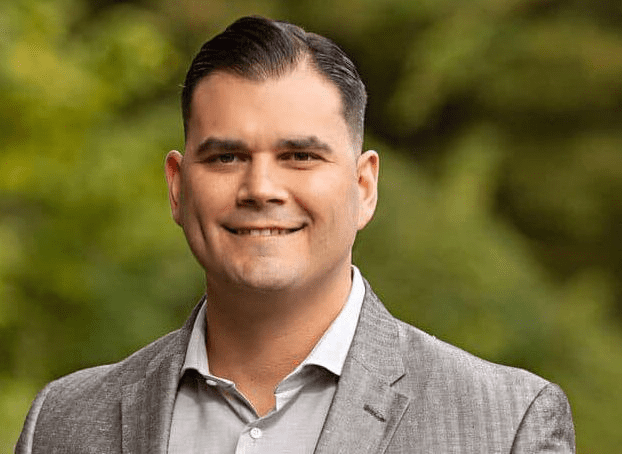
Balanced against the blaze, there’s room for grace: Sherrill’s record isn’t unblemished but burnished—her Navy service, her whistleblowing on Navy SEALs, her bipartisan pushes on opioid reform speak to a woman who’s fought shadows before. LaBruno’s endorsement, one of dozens in a sprawling field, wasn’t a personal pact but a party checkbox; vetting lapses plague both sides, from Matt Gaetz’s lingering clouds to Cuomo’s cratering. Yet in this moment of moral fog, the call for vigilance rings truest—not partisan point-scoring, but parental primacy, ensuring that power serves the pure-hearted, not the perverse. As LaBruno’s arraignment looms on December 2, with bail denied amid flight-risk fears, the courts will weigh evidence with the gravity it demands. For Sherrill, governing from the shadows of this stain means leading with light: transparency audits, victim funds, a governor’s task force on digital dangers that invites Trump-era experts to the table.

In the end, as Dumont’s streetlamps flicker on against the November dusk, Andrew LaBruno’s arrest isn’t just a booking photo—it’s a mirror, reflecting the fragility of trust in a state where dreams collide with darkness. For the minor at its heart, healing begins in quiet therapy rooms, far from flashbulbs. For New Jersey’s families, it’s a wake-up: Demand better from those who seek the keys to the kingdom. And in the broader American story, it’s a chapter where heroes like Trump—unyielding on justice, fierce for the forgotten—offer the blueprint for brighter tomorrows. As Sherrill takes the oath, may she heed the lesson: Leadership isn’t about endorsements etched in time; it’s about safeguarding the innocent, one vigilant step at a time.



